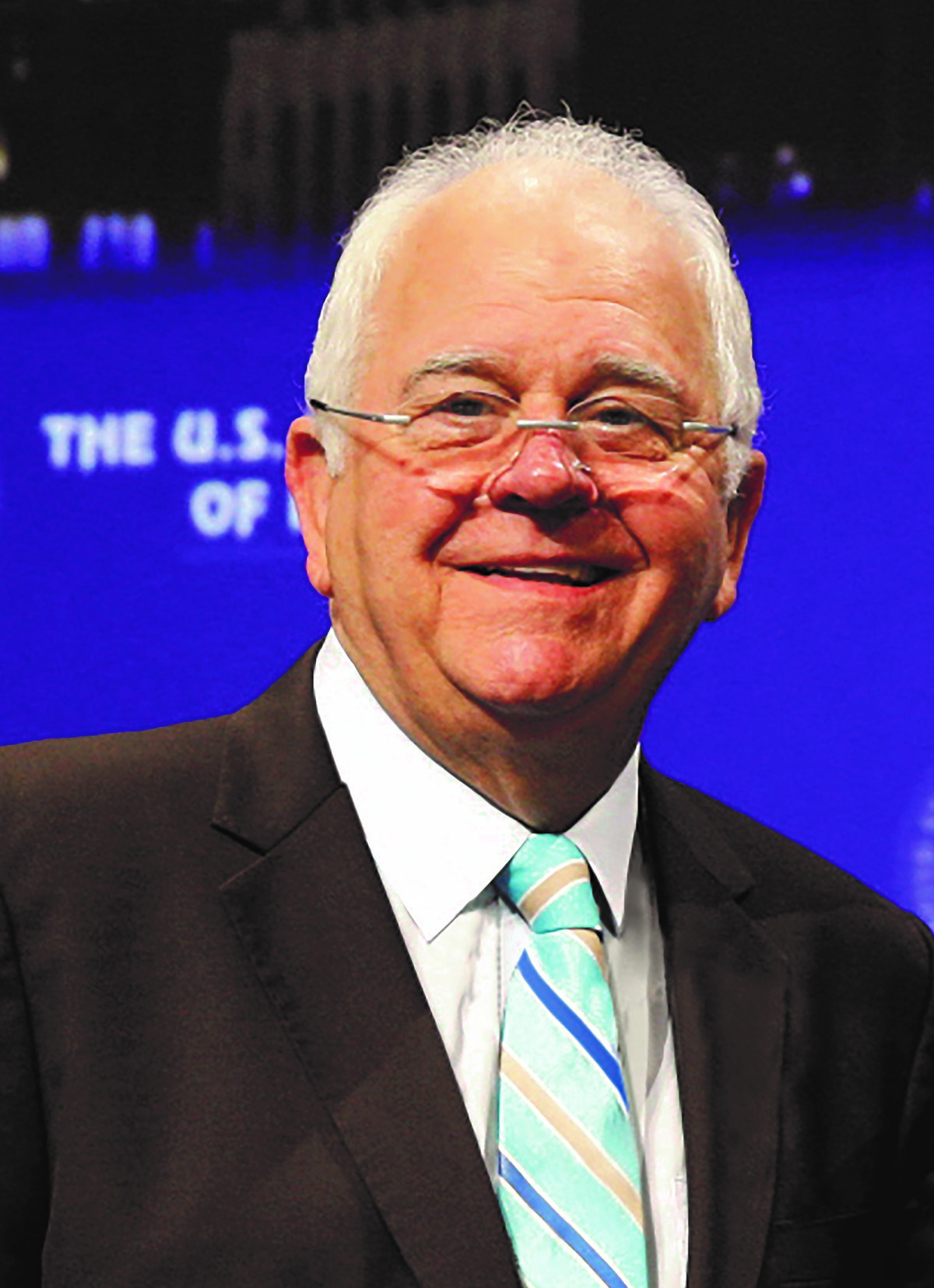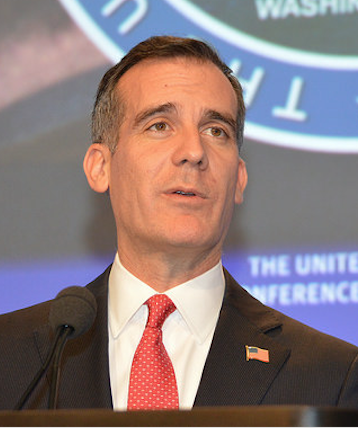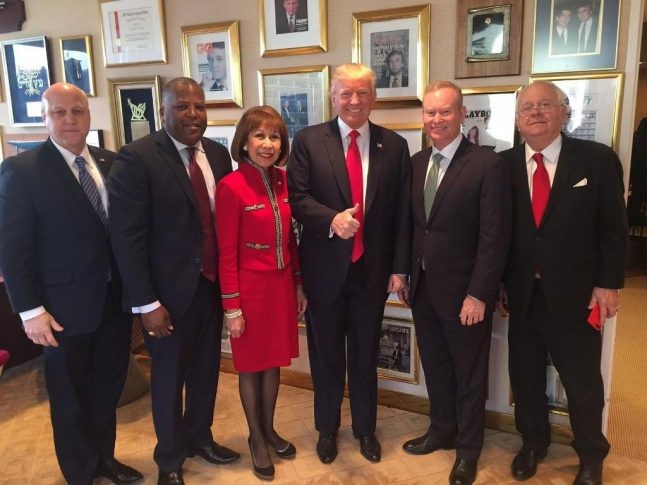
What a Trump presidency means for cities
01 February 2017
by Folkert Leffring
By Tom Cochran, CEO and Executive Director, United States Conference of Mayors
The mayors of the United States find themselves in uncharted waters. Certainly, top priorities of the mayors of the United States match some of the top priorities of our new president. USA mayors have led the way in this country with their ‘Invest and Protect’ theme during the recent tumultuous US presidential campaign.
Invest means a national commitment to modernise and streamline our infrastructure, which includes transportation and water systems. President Trump has called for a multibillion-dollar infrastructure plan. His rhetoric and message of “make America great again” is to have gleaming airports like in China and other modern facilities. No doubt, mayors agree and support new projects, but they are also faced with serious infrastructure maintenance issues including transportation and water systems. At issue is the congestion and crumbling roads in many of our metro areas that continue to choke our paths to work and play resulting in stress and taking precious time away from family and other activities.
The question is how will the Trump administration find the money to rebuild our infrastructure to meet the needs of 2017 and beyond? The other question is the timetable for putting infrastructure programmes on the front burner. While the answer seems to be pointing to market driven by public private initiatives, there is concern that the market driven approach might not be including key rust belt and economically challenged cities.
The question is whether the billionaire businessman elected president will use his bully pulpit to bring manufacturing jobs back to America
Politically, so many of Trump’s supporters reside and live in these areas. That’s why mayors are calling for a formula, including need and economic factors that will not leave the economically challenged areas out. They voted for change and they want jobs and change now.
As to a safe and secure America–on our streets, neighbourhoods, and in our homes, Trump, during the campaign, broadly charged that all cities are crime-ridden death traps. The facts show that this is not the case throughout our nation. No doubt, certain cities have experienced spikes of murder or violence, but much of this phenomenon is caused by drug wars, guns, and a lack of jobs. Mayors welcome assistance from the Justice and Homeland Security Departments. Cocaine and heroin can’t be grown in the continental United States and yet our federal government can’t stop it from coming in. Guns are especially available and the National Rifle Association continues to rule in state legislatures and the Congress of the United States. Trump was endorsed by the National Rifle Association which leads us to believe that our police departments will need resources and smart initiatives to rid the hot spots of death and crime in a number of American cities.
Overall, today’s police departments across the nation are challenged with a lack of trust due, in part, to the Ferguson, Missouri upheaval of 2014 as well as so many others. Since then, mayors within the United States Conference of Mayors have confronted the distrust through our efforts in community policing, and many mayors are making progress at that local level on this national issue.
After the Dallas massacre of police officers in 2016, Dallas Police Chief Brown faced the TV cameras to tell the American political establishment of the pressure the modern-day police officer experiences. Chief Brown said that we are asking our police officers to meet the needs of people who have been neglected by their nation. He went on to say police officers are therapists, mentors, dog catchers, traffic ticket officers, deal with street crime, neighbourhood crime, domestic abuse, and in 2017 they’re also warriors to stop ISIS from killing more of us.
I remind all that in the USA, it is the mayor and his or her police department that provides the safety for our cities. Policing is not a federal or national responsibility in America. That is not the case in other industrialised nations of the world.
Trump, during the campaign, broadly charged that all cities are crime-ridden death traps. The facts show that this is not the case throughout our nation
Most studies show that higher crime areas can be wiped out if there are more jobs. The question is whether the billionaire businessman elected president will use his bully pulpit to bring manufacturing jobs back to America. Mayors stand ready to work with our new president to bring decent paying jobs back to the unemployed and underemployed.
Following the elections on 8 November last year, in many cities, mayors were faced with the fear and trepidation in the ever-growing immigrant, Latino, Muslim, LGBT and all minority communities. Latino families wondered whether or not they would be deported, families split and some members sent back to their countries of origin.

The fact is that the mayors, being closest to the people, are being forced to move to unite toward protecting so many families now living in the US. Eric Garcetti, Mayor of Los Angeles, heads up the Latino Alliance of the United States Conference of Mayors and since the election he has been leading an effort to secure a more common sense approach to fear and threats of what might happen with this new administration. While the rhetoric was hot in the campaign, no doubt all agree that criminals must be sought out and deported. Mayors are also saying that our community police officers will not be US Immigration and Customs Enforcement officers. Mayors will remain united to protect the valuable minorities of their cities. Some predict that Trump won’t be as fierce in his actions as he was with his words on the campaign trail.
Another area of contention is the president’s announcement that he will abolish Obama Care–The Patient Protection and Affordable Care Act–mayors will stress that there are some very valuable components of this legislation that must be protected. A number of Republican Senators are demanding that key components must not be abolished without a substitute or replacement. Martin Walsh, Mayor of Boston and Chair of the Children, Health and Human Services Standing Committee of the United States Conference of Mayors will lead efforts to protect needed components. Support is building to fix the Affordable Care Act, and not to throw the baby out with the bathwater.
There are two other mainstay initiatives that are most important to our cities. First is the Housing and Urban Development Administration’s Community Development Block Grant Program (CDBG) which provides US$3 billion directly to cities for community development. This keystone of urban development was enacted in 1974 and has been an invaluable part of city development. Mayors will be on guard to defend the CDBG programme.
The second is the tax exemption provided for municipal bond investment. This exemption was enacted in 1912 and is the key provision cities presently have to secure funding for infrastructure development, schools, hospitals and libraries. Republican members of Congress have announced the tax code proposals will affect every exemption that exists today.
With highway and transportation funding flat, and no special projects or ‘pork’, the only thing left for infrastructure development is the tax exemption that exists for municipal bond investments. Mayors and their allies will fight to save this vital tool we have had for over 100 years.

President Trump met the US Conference of Mayors leadership team in December
On 15 December last year, Mick Cornett, Mayor of Oklahoma City and President of the United States Conference of Mayors, along with a delegation of mayors and me, met with the president in Trump Tower in New York City.
We met alone with him, and it was a most informed meeting where Cornett expressed our desire to establish a relationship to work with the new administration to strengthen our cities and thus strengthen the nation. Transportation and infrastructure took up most of the conversation and he expressed an intention not to remove the municipal bond tax exemption.
Cornett, a Republican, who addressed the Republican National Convention in Cleveland last year emphasised to the president that we, the United States Conference of Mayors, are a true bipartisan organisation and we pledge our desire to find common goals as we move forward. While the meeting was most important, we all realise that we still are in uncharted waters with the fervent hope and determination to emerge as we have before with other presidents to continue to make America even greater than it was before. In Trump’s first 100 days, mayors will be most active, they will find a way to continue to lead the way to provide the American way of life with decent jobs, safe cities, opportunities of education and culture for the 85 percent of the American people who now reside in American cities.







